A Guest Blog by Asian Opera Alliance Executive Director Melody Chang
The influence of Puccini’s Turandot is indisputable—its soaring melodies and fantastical setting has captivated audiences all around the world. Its signature tenor aria, “Nessun dorma,” has come to symbolize opera for millions, a rare case of an aria that has had a drastic impact even on those outside of the opera world. Along with the likes of the Queen of the Night’s “Der Hölle Rache" from The Magic Flute and the "Habanera" from Carmen, "Nessun dorma" has appeared, in some way, in nearly every type of media and continues to be used regularly by television series, movies, sports teams and more. However, performances of Turandot throughout history have perpetuated harmful stereotypes, depicted through Puccini’s setting of the story in a fantastical, Euro-centric interpretation of a barbaric ancient China. These offensive stereotypes were rumored to have been the impetus for its lack of performances in China for most of the 20th century.
As our cultures and sensitivities evolve with clear hindsight and optimism for a better tomorrow, the Asian Opera Alliance (AOA) has developed a consulting relationship with many American opera companies to advise on the presentation of popular Orientalist operas such as Turandot and Madama Butterfly. An all-volunteer organization, AOA is comprised of professionals in the opera industry, including singers, administrators, teachers, coaches, designers, pianists, composers and others. It is undisputed that Turandot and Madama Butterfly are both successful at the box office, as they are well-known and well-loved in the American opera repertoire. We believe it to be beneficial to the industry to continue to present these works with careful contextualization.
Viewing these pieces through the lens of history, it is important to note that Turandot was written at a time when European countries were fighting to colonize and expand their influence. Colonizers would return to their home countries with stories of their travels and these stories would inspire curiosity that was reflected in the Orientalist art. These inaccurate and trite stereotypes should not remain frozen in the time period these works were written and should instead be reexamined in modern presentations; contextualizing the limited world view that Puccini had at the time can lessen the harm of the operas like Turandot.
AOA signed onto this production of David Hockney’s Turandot in October 2023, after the production was announced. LA Opera approached AOA in hopes of finding out the best way to present this preexisting production with the least amount of harm possible. Knowing that this is a production that originally premiered in 1992, AOA was concerned about the number of changes that could be made. However, we saw this as an opportunity to present to the opera world a better, more responsible process while recognizing that the changes we are working to make are nowhere near ideal. With the understanding that not every company can spend time and money to reimagine or create new productions, AOA seeks to serve not only as a guide, but also to encourage our industry to continue to do better as they continue to program this opera.
Throughout this process, AOA has met with nearly every department at LA Opera. We started by meeting with the costume and production departments to review each of the preexisting costumes and headwear as well as the makeup, wigs, and facial hairstyles. We were intentional about maintaining Hockney’s angular lines while making small changes to disrupt the overall silhouette that too strongly evoked stereotypes of ancient China. We examined headwear for the chorus and found that instead of the stereotypical rice paddy hat shape, we could still achieve an angular look by fabricating beret-inspired hats. Given the long history of American media using exaggerated features to vilify Asians, we removed all Fu Manchu-type facial hair styles and replaced them with varying options. In looking at the makeup designs of previous productions, it became clear that certain characters were made up in more of a “mask” look, so we worked to bring out the mask aspect of these looks, playing on the fantastical nature of the story. These mask-like looks are outlined with a strong line, emphasizing the intention of the mask. The hair and makeup team has also been working hard to ensure that every character is adorned with the natural hair color and texture of the person portraying them, as well as making sure everyone’s makeup matches their own skin color and their eye makeup accentuates their own features. We feel strongly that this does not take away from the story but allows these stories to be told without the use of yellowface; this is now a well-established practice that must be employed by all responsible companies that are intent on continuing to present these works.
AOA also met with the marketing, development, PR and Connects teams to guide them on how to contextualize this work and speak about the depiction of Asian stereotypes in Turandot while also promoting the work that has been done to this production to lessen its potential harm. We ask all companies presenting works that depict Asian characters in Eurocentric, Orientalist fantasies to provide a safe space for artists and employees who may be impacted by the sensitive nature of these works. In addition to resources provided through LA Opera, AOA has offered a safe avenue for artists to voice questions and concerns related to the cultural aspects of Turandot and has invited all involved to join in learning about complexities and sensitive issues.
While this is a preexisting production, AOA applauds LA Opera for taking steps to curtail the potential harm from this production and has found this process to be engaging and should serve as a roadmap for companies seeking to program Orientalist works. We encourage all who program Turandot to contextualize this opera and acknowledge the complications of presenting this type of programming to audiences in America. The history of vilifying Asians still haunts those of us who lived through traumatic events in our country’s history including the mass incarceration of Japanese Americans during World War II, the murder of Vincent Chen, the anti-Asian narrative during COVID-19 and the 2021 murders of six Asian women in Atlanta. Together, we can work to reconstruct our industry as compassionate and mindful towards other cultures, while ensuring that masterpieces like Turandot can continue to be presented, if they are produced responsibly.




